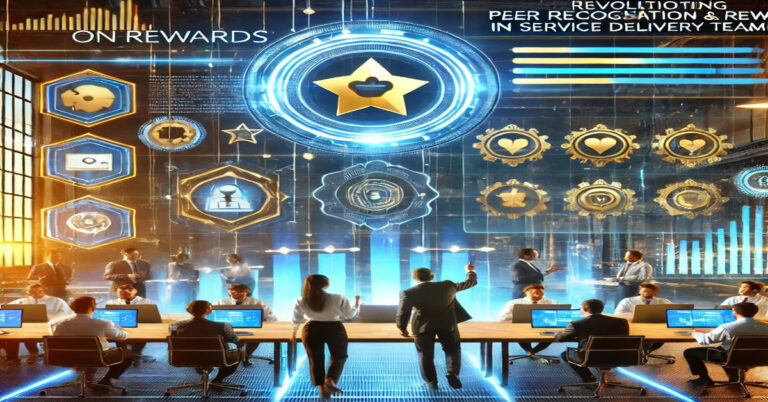Eastern Leadership Centre: Transforming Leadership in the East for a New Global Era
In a world increasingly shaped by Asian economies, the need for leadership models tailored to Eastern values has never been greater. The Eastern Leadership Centre (ELC) exists to address this gap, providing leaders in Asia with frameworks, tools, and educational pathways rooted in the region’s unique cultural and business landscapes. Unlike Western leadership schools that primarily teach hierarchical or individualistic leadership strategies, the ELC focuses on a collectivist, holistic, and future-facing approach, helping leaders navigate the complexities of Eastern economies with strategies that resonate culturally and practically.
This article will offer an in-depth look into what the Eastern Leadership Centre is, why it matters in today’s evolving world, how it differs from traditional leadership models, and what programs it offers. It will also explore how the ELC is redefining leadership for modern challenges such as climate change, digital transformation, and social equity—challenges that require a different kind of leader: one who listens more than dictates, collaborates more than commands, and understands cultural nuance over corporate protocol.
What Is the Eastern Leadership Centre?
The Eastern Leadership Centre (ELC) is a training, research, and thought-leadership institution focused on developing leaders in Asia through culturally aligned methodologies. While many global business schools focus on frameworks developed in Western economies, the ELC provides an alternative: leadership education that is regionally contextualized and globally relevant.
The ELC is not just a business school; it is a leadership ecosystem. It combines executive education, applied research, policy advisory services, and cultural immersion programs. Participants range from CEOs and government officials to social entrepreneurs and emerging managers, all seeking to lead in ways that harmonize with Eastern values like harmony, patience, and relationship-centered decision-making.
Why the Eastern Leadership Centre Is Needed
Leadership is not a one-size-fits-all discipline. The rise of China, India, Southeast Asia, and the Gulf nations has highlighted the need for leadership paradigms that reflect Eastern worldviews. Concepts like “guanxi” (relationships in China), “tatemae and honne” (public vs private truth in Japan), or “seva” (service-based leadership in India) influence how decisions are made, how teams are managed, and how organizations grow.
The ELC exists because importing Western leadership models into Eastern contexts often creates friction. Western leadership focuses on individualism, short-term performance, and direct communication. Eastern leadership tends to emphasize community, long-term stability, and subtle negotiation.
Without institutions like the ELC, Asia’s future leaders risk being taught to lead in ways that clash with local realities. The Centre aims to bridge this gap.
The Pillars of the Eastern Leadership Centre
To understand the ELC fully, consider its core pillars. These are the foundational concepts that guide its programs, research, and philosophy.
Cultural Intelligence Development
Cultural intelligence (CQ) is not optional in Eastern leadership—it’s essential. The ELC trains leaders to navigate the complex cultural tapestries of Asia, where business negotiations might involve silent pauses, indirect answers, or symbolic gestures that carry more weight than words. ELC programs teach leaders to read between the lines.
Relationship-Oriented Leadership
Unlike Western leadership, where performance metrics dominate, Eastern leadership often prioritizes trust-building and loyalty. The ELC helps leaders build deep, enduring relationships with employees, stakeholders, and partners, understanding that relational capital can be as important as financial capital.
Ethical Stewardship
In Asia, many societies still look to leaders for moral guidance. The ELC emphasizes ethical leadership, focusing on sustainability, fairness, and long-term value creation over short-term gain.
Mindful Decision-Making
ELC teaches mindfulness-based leadership. Decision-making is approached with reflection, patience, and awareness of broader social consequences, helping leaders resist impulsive moves in favor of thoughtful, inclusive action.
Innovation with Tradition
The ELC believes innovation doesn’t have to mean abandoning tradition. Programs explore how technology and modern strategies can coexist with ancient philosophies, such as Confucian harmony or Buddhist non-attachment.
Programs Offered at the Eastern Leadership Centre
The ELC’s programs are as diverse as Asia itself. From executive education to grassroots leadership workshops, the offerings are designed to meet leaders at every stage of their career.
Here’s an overview of the main programs:
Program Name
Executive Leadership Program
Focus
Cultural intelligence, strategic negotiation, relational leadership
Duration
12 weeks (online and on-site modules)
Ideal Participants
CEOs, senior executives, government officials
Program Name
Emerging Leaders Fellowship
Focus
Leadership foundations, ethics, team building, conflict resolution
Duration
6 months (part-time)
Ideal Participants
Managers, young professionals, social enterprise leaders
Program Name
Policy Leadership Academy
Focus
Governance, public-private partnerships, cultural diplomacy
Duration
8 weeks intensive
Ideal Participants
Policy makers, government advisors, NGO directors
Program Name
Mindful Leadership Retreats
Focus
Mindfulness, meditation, resilience, work-life balance
Duration
5 days (residential retreat)
Ideal Participants
All levels, especially burnout-prone leaders
Program Name
Women in Eastern Leadership Program
Focus
Gender equity, leadership confidence, negotiation, breaking cultural barriers
Duration
4 months
Ideal Participants
Female professionals across sectors
How the ELC Differs from Western Leadership Schools
The difference between the Eastern Leadership Centre and a typical Western MBA program is not just about geography—it’s about philosophy.
| Feature
| Western Leadership Education
| Eastern Leadership Centre
| Focus
| Individual achievement, profit maximization
| Collective growth, ethical stewardship
| Decision-Making Style
| Fast-paced, data-driven
| Reflective, context-aware
| Communication
| Direct, assertive
| Nuanced, relationship-focused
| Curriculum
| Case studies from Fortune 500 companies
| Case studies from Asian family businesses, governments, NGOs
| Cultural Relevance
| Primarily Western frameworks
| Deeply rooted in Eastern traditions
| Outcome
| Competitive leadership for market dominance
| Harmonious leadership for sustainable success
Impact of the Eastern Leadership Centre on Asian Economies
The ELC’s influence is not theoretical—it has tangible effects on the ground. By training leaders in culturally relevant ways, the Centre is reshaping how organizations grow and interact. Some notable impacts include:
- Business Transformation: Asian companies led by ELC alumni report higher employee retention rates due to relational management styles.
- Government Innovation: Policy leaders trained at the ELC have introduced public programs emphasizing harmony between economic growth and cultural preservation.
- Social Equity: The Women in Eastern Leadership Program has helped break barriers for female executives, resulting in more diverse boardrooms.
- Sustainability: ELC-trained leaders are more likely to pursue green initiatives, reflecting the Eastern ethos of balance with nature.
Research and Thought Leadership
Beyond training, the ELC is also a think tank. Its research arm collaborates with universities, corporations, and governments to study emerging leadership trends in Asia. Some current research areas include:
- Family Business Succession in East Asia: How traditional family businesses transition leadership without losing cultural identity.
- Digital Leadership in the East: Balancing technological innovation with human-centric leadership.
- Post-Pandemic Governance in Asia: Lessons from Eastern crisis management models.
- Cross-Border Leadership: Leading multicultural teams across China, India, Southeast Asia, and the Gulf.
The Role of Eastern Philosophy in Modern Leadership
One of the most unique aspects of the ELC is how it integrates philosophical teachings into modern leadership education.
For example:
- Confucianism: Emphasizes hierarchy but also mutual obligation. Leaders are taught to care for subordinates as family.
- Buddhism: Encourages mindfulness and detachment from ego, promoting balanced decision-making.
- Taoism: Stresses flow and adaptability, important for leaders navigating unpredictable markets.
- Islamic Leadership Ethics: Especially relevant in Muslim-majority Asian countries, focusing on justice and social responsibility.
- Hindu Dharma: Guides leaders to act in accordance with duty and cosmic order.
The Future of the Eastern Leadership Centre
As Asia continues to rise on the global stage, the demand for Eastern-centric leadership education is accelerating. The ELC plans to expand its reach in the next decade by:
- Opening satellite centers in South Asia, the Gulf, and East Asia
- Developing online programs accessible to remote regions
- Partnering with international universities to integrate Eastern leadership into global curriculums
- Launching leadership programs for climate change and AI ethics
Testimonials from ELC Alumni
Hearing from those who’ve experienced the ELC gives insight into its transformative power:
Li Wei, CEO, Shenzhen Tech Solutions
“Before the ELC, I led like a Western manager—fast, competitive, and stressed. Now, I lead with balance, patience, and vision.”
Ananya Rao, Director of Social Impact, Mumbai
“The Women in Eastern Leadership program helped me navigate cultural biases and grow into my leadership role with confidence.”
Ahmed Al-Saleh, Policy Advisor, Dubai
“Eastern leadership is about more than business—it’s about harmony with people and the environment. The ELC taught me that.”
Conclusion: Why the Eastern Leadership Centre Matters Now
The Eastern Leadership Centre represents more than just an educational institution—it’s a cultural movement. It acknowledges that leadership cannot be universalized through Western blueprints. The Centre provides leaders with tools not just for economic success but for ethical, cultural, and social responsibility. In an era of globalization, the ELC ensures that Asia’s leaders grow on their own terms, in alignment with the values that define their societies.
For anyone seeking to understand the future of leadership in Asia, or to become a leader in this fast-changing region, the Eastern Leadership Centre is not just relevant—it is essential.
Read More: https://2amagazine.co/la-california-shirt/
FAQs
Is the Eastern Leadership Centre only for Asian nationals?
No. The ELC welcomes global participants interested in understanding or working within Eastern cultural contexts.
Does the ELC offer online programs?
Yes. The ELC offers hybrid programs combining online and in-person modules for flexibility.
How is the ELC funded?
Through a mix of tuition fees, partnerships with governments, and support from private philanthropists.
Can non-executives attend the ELC?
Yes. Programs are available for emerging leaders, entrepreneurs, and social change-makers, not just corporate executives.
Does the ELC publish its research?
Yes. Many ELC research papers are publicly accessible or published in academic journals and policy whitepapers.







